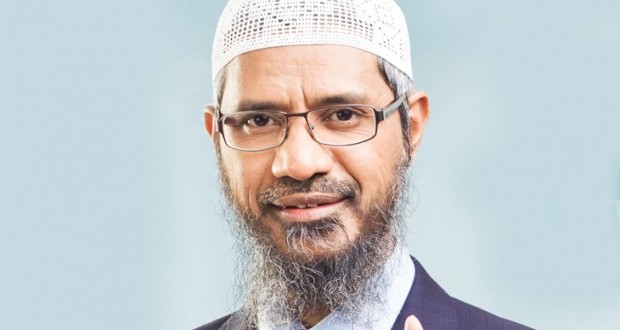Picture a young man standing before a crowd of eager listeners, his voice steady and confident, delivering insights that blend Islamic teachings with contemporary issues. This is Zakir Naik, an Indian orator whose speeches have captivated millions. From his early days in Mumbai to becoming a prominent Islamic scholar, Naik’s journey is nothing short of fascinating. He wasn’t always in the spotlight, but his rise to fame has been marked by dedication, controversy, and significant influence.
Born on October 18, 1965, in Mumbai, India, Zakir Naik was raised in a modest family. He initially pursued a career in medicine but soon felt a calling towards Islamic scholarship. His early life was marked by a deep curiosity and commitment to understanding and teaching Islam.
Educational Journey: From Medicine to Islam
Naik’s academic journey is a testament to his dedication. He completed his medical education at the Topiwala National Medical College in Mumbai. However, his true passion lay in Islamic studies. He transitioned from medicine to become a well-versed Islamic scholar, driven by a desire to clarify misconceptions and educate both Muslims and non-Muslims about Islam.
Rise to Prominence: Zakir Naik as an Islamic Scholar
Founding the Islamic Research Foundation
In 1991, Zakir Naik founded the Islamic Research Foundation (IRF). This institution became the cornerstone of his work, focusing on Islamic propagation and interfaith dialogue. The IRF aimed to provide a comprehensive understanding of Islam through lectures, debates, and publications. Under Naik’s leadership, the IRF grew into a significant platform for Islamic discourse.
Key Contributions to Islamic Discourse
Naik’s contributions to Islamic discourse are notable. His ability to address complex religious and social issues relatable has earned him recognition. His lectures often explore Islamic teachings on modern science, social justice, and interfaith harmony. These discussions not only provide insights into Islam but also engage with broader societal questions.
Public Speeches and Debates
Zakir Naik is perhaps best known for his public speeches and debates. He has spoken on various platforms worldwide, often addressing audiences that include both Muslims and non-Muslims. His debates with scholars from other religious traditions have been particularly influential, showcasing his knowledge and eloquence.
Educational Programs and Publications
Beyond speeches, Naik has also contributed through educational programs and publications. His books and articles aim to clarify Islamic principles and answer questions about the religion. These resources are used widely by students and scholars alike, furthering his mission to educate and inform.
The Controversies: Challenges in Zakir Naik’s Career
Political and Social Criticisms
Despite his contributions, Naik’s career has not been without controversy. He has faced criticism from various political and social groups. Critics argue that some of his statements and positions are divisive or controversial. These criticisms have sparked debates about the role of religious leaders in society and the limits of free speech.
Legal Issues and International Scrutiny
Zakir Naik has also encountered legal challenges. Various governments have scrutinized him, and some have even banned him from entering their countries. These legal issues often stem from allegations related to his speeches and public statements, which some view as inflammatory or politically charged.
Impact and Influence: Zakir Naik’s Global Reach
Media Presence and Online Platforms
Naik’s impact extends significantly through media and online platforms. His lectures and debates are widely shared on social media and YouTube, reaching a global audience. This digital presence has amplified his influence, allowing him to engage with people from diverse backgrounds.
Followers and Global Support
Zakir Naik has garnered a substantial following worldwide. His supporters appreciate his efforts to clarify Islamic teachings and engage in interfaith dialogue. This global support highlights his significant role in shaping contemporary Islamic discourse.
Conclusion:
Zakir Naik’s journey from a young medical student to a prominent Islamic scholar is a story of passion and perseverance. His contributions to Islamic scholarship and his global reach reflect his dedication to educating others about Islam. While his career has been marked by controversy, his impact on both Muslims and non-Muslims alike is undeniable. As we look back on his legacy, it’s clear that Zakir Naik has left an indelible mark on the world of Islamic discourse.

